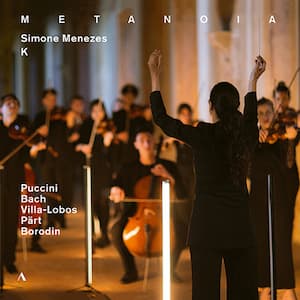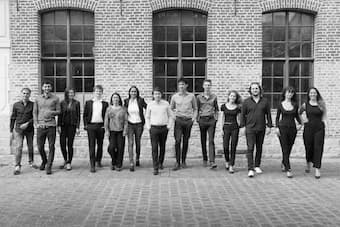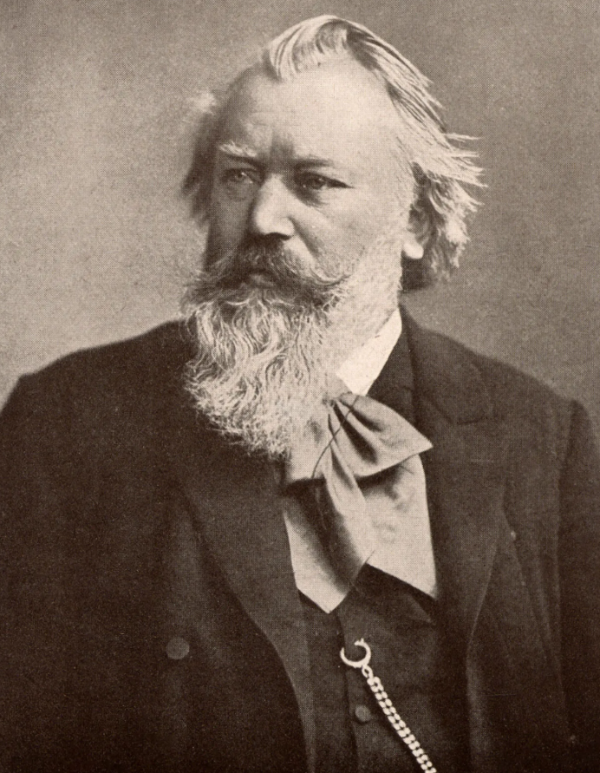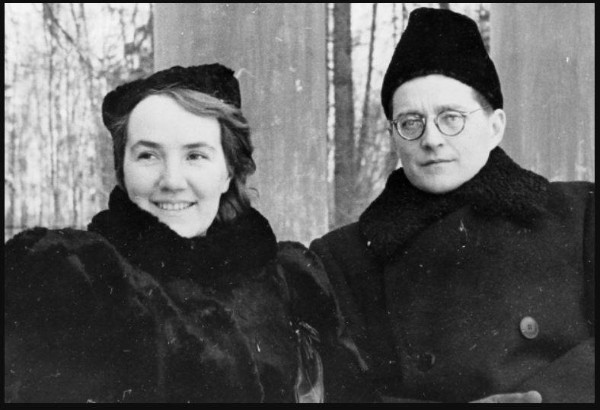
Simone Menezes © Daniela Cerasoli
Metanoia, a change in one’s way of life resulting from penitence or spiritual conversion, can be considered one of the interesting offshoots of the whole COVID period. If we redefine it away from spiritual matters and make it “transformations in how we think about life,” then we can see the applications to everyone’s current situation. There’s been a fundamental change in how we live our lives: less rushing toward tomorrow and more thinking about tomorrow. More consideration of what we need to do to create a life that we’re happy living.
For conductor Simone Menezes, it was an encounter with the music of Estonian composer Arvo Pärt that started her thinking about composers and why they wrote what they wrote. In constructing her concerts around the Metanoia theme, Menezes started with Bach and the Sarabande from his Partita No. 1. From this work for solo violin in C minor, she traced a path forward toward Heitor Villa-Lobos, who in the Prelude to his Bachiana Brasileiras No. 4, carried the idea of Bach and the solo performer and the key of C minor forward to a string ensemble. Next the string ensemble is carried forward to Giacomo Puccini’s rare excursion into sacred music, his Messe di Gloria of 1880. Written as he was just finishing his composer training, it was set aside when he took opera so successfully and only found again in the 1950s.
Giacomo Puccini: Messa di Gloria (excerpts): Kyrie (Sequenza 9.3; Ensemble K; Simone Menezes, cond.)
From Puccini, we go to Arvo Pärt’s In Spe, written after his creative crisis that took him away from serial and atonal music towards more traditional music of the Orthodox church. This work, for woodwind quintet and string orchestra is a meditation on the Babylonian exile of the Jews – or of any other repressed group forced out of their country.
Arvo Pärt: In spe (Ensemble K; Simone Menezes, cond.)

Metanoia
The close to the Metanoia concert and album comes from an unexpected source: the Polovtsian Dances from Borodin’s opera Prince Igor. Now we are outside the introspection of Pärt and Bach and into simpler idea of authenticity and sincerity.
Menezes approaches all of this music with a unique perspective – what is the soul of the composer that is revealed here? She compared it to the difference between French and other cuisines – French cuisine is about the aesthetic experience while other cuisines have more basic concerns about nourishment. So she finds the differing aesthetic experiences of composers as different as Bach and Borodin a similar aesthetic experience in metanoia. Each element of the works she has chosen – often single movements from large works – builds on the previous work – from Bach to Villa-Lobos to ending up with the wild dancing of Borodin, each part contributes to the whole.
J.S. Bach: Violin Partita No. 1 in B Minor, BWV 1002: V. Sarabanda (Manon Galy, violin)

Ensemble K
Metanoia is more than just this CD. It’s also a larger documentary and discussion project that will be issued in Spring 2022. In the documentary, she speaks more fully about her search for metanoia in composers’ lives and what music emerged from it. She’s joined by people such as Antonio Pappano and Albert Cavalli to examine this idea. The 10-concert tour will be conducted internationally, starting in Milan and then to London, Paris, and New York, so far.
She questions music: What is eternal? What stays? Who can explain Bach’s continuing importance? What do we learn from history and how do we move forward with that knowledge? In looking at the concept of metanoia, she begins to answer these questions. The restrictions on everyone’s life from COVID gave everyone an opportunity to reflect and think and Menezes used the time to create a very interesting conceptual project that benefits everyone. When you find the soul of the composer, you find something deeper than music, you find subtle lines of connectivity that carry your thoughts beyond the music on the page.
For more of the best in classical music, sign up to our E-Newsletter



